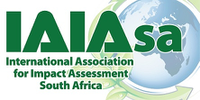Event Details
ONLINE TRAINING : BASIC DIGITAL TRANSFORMATION FOR EAPs
AN ONLINE TRAINING COURSE OVER ONE WEEK
17 -21 APRIL 2023
(5 DAYS FOR 2 HOURS PER DAY)
DELEGATES WILL NEED TO BE AVAILABLE FROM 12H00 -14H00 EACH DAY
BEST BENEFIT WILL BE GAINED IF SOME PRACTICE/EXPERIMENTAL TIME IS ALLOWED FOR EACH DAY AFTER THE COURSE
Trends in digital transformation
It is useful for all professionals, including Environmental Assessment Practitioners, to understand trends in digital transformation. This section of the course will provide an overview of major trends in digitalisation including:
• Hyper-automation
• The internet of things
• No-code app development
• Big data
• Data as an asset
• Artificial Intelligence (AI).
A discussion will be held on how these might affect environmental practice.
Automating Microsoft Word
This part of the course will cover the following:
• Setting up the working space for better efficiency.
• Mini automation – the use of document properties to ensure consistency across the document and roll out changes across the entire document (e.g., if a date is changed or a name). This can be demonstrated in 5 minutes (hence the title mini automation). A hands-on tutorial will also be provided so that participants can practice the technique.
• Intermediate automation – This will include the use of mail merge and fields to further automate documents.
• Advanced automation – This will only be dealt with in theory as it requires significant time to learn. It will include how Microsoft's Power Automate can be used to automate word documents. For example, power automate can create multiple duplicate letters addressed to different individuals using a SharePoint list. It can also construct and send the emails with the letters attached.
• Combining documents from different specialists into one document.
• Working with track changes: consolidating changes from a number of reviewers, Compare and Combine tools.
Automating PowerPoint
This part will cover a demonstration of:
• Master slides
• Smart Art
• Slide transition effects to make presentations more dynamic.
Advanced Excel
Various functions can be used in Excel to improve the work of specialists providing information to Environmental Assessment Practitioners. This module of the course will include a step-by-step tutorial where participants will build a spreadsheet for impact assessments. The spreadsheet will include at least the following:
• Dropdowns to prevent spelling errors
• Calculations and lookups so that specialists cannot accidentally create errors or inconsistencies when typing in formulas or values
• Protection so that specialists cannot change the structure of the document rendering it difficult to compare (e.g., inserting of columns can be prevented)
• Conditional formatting so that colours alter depending on inputs automatically
• How to distribute it via SharePoint so that all specialists access the same sheet.
Power BI
A short session on how Power Query and Power BI can be used to display data interactively via a dashboard. Participants will import prepared data into Power BI and create a graph and a map. The importance of data cleaning to allow for such dashboards will be discussed.
Interactive online maps
Online maps are becoming more and more available and can provide an interactive platform for the public to view EIA data. The course will provide a demonstration of such a map and discuss the software options for maps as well as important considerations for using an online system.
Online Forms
A range of no-code platforms exist to create basic forms and collect data from these over the internet. These forms can be useful for site visits or to collect the names and information for Interested and Affected Parties. The forms that will be covered include:
• Microsoft Forms
• Google Forms
• Jot Forms
• Esri Field Maps, Survey123 and open-source alternatives
A hands-on tutorial will be given using Jot Forms or Microsoft Forms as it is freely available.
DYI Videos
Videos are becoming standard due to the advancements in cell phone cameras and screen recording. Professional video production and editing will always be the gold standard, but relatively high-quality video is possible for people who are not video professionals. The course will show how videos can be recorded in power point. Such videos can include screen recording, video recording and audio. Other options will be discussed, and links provided.
In the Agenda below, kindly click on each date, to view daily activities.










